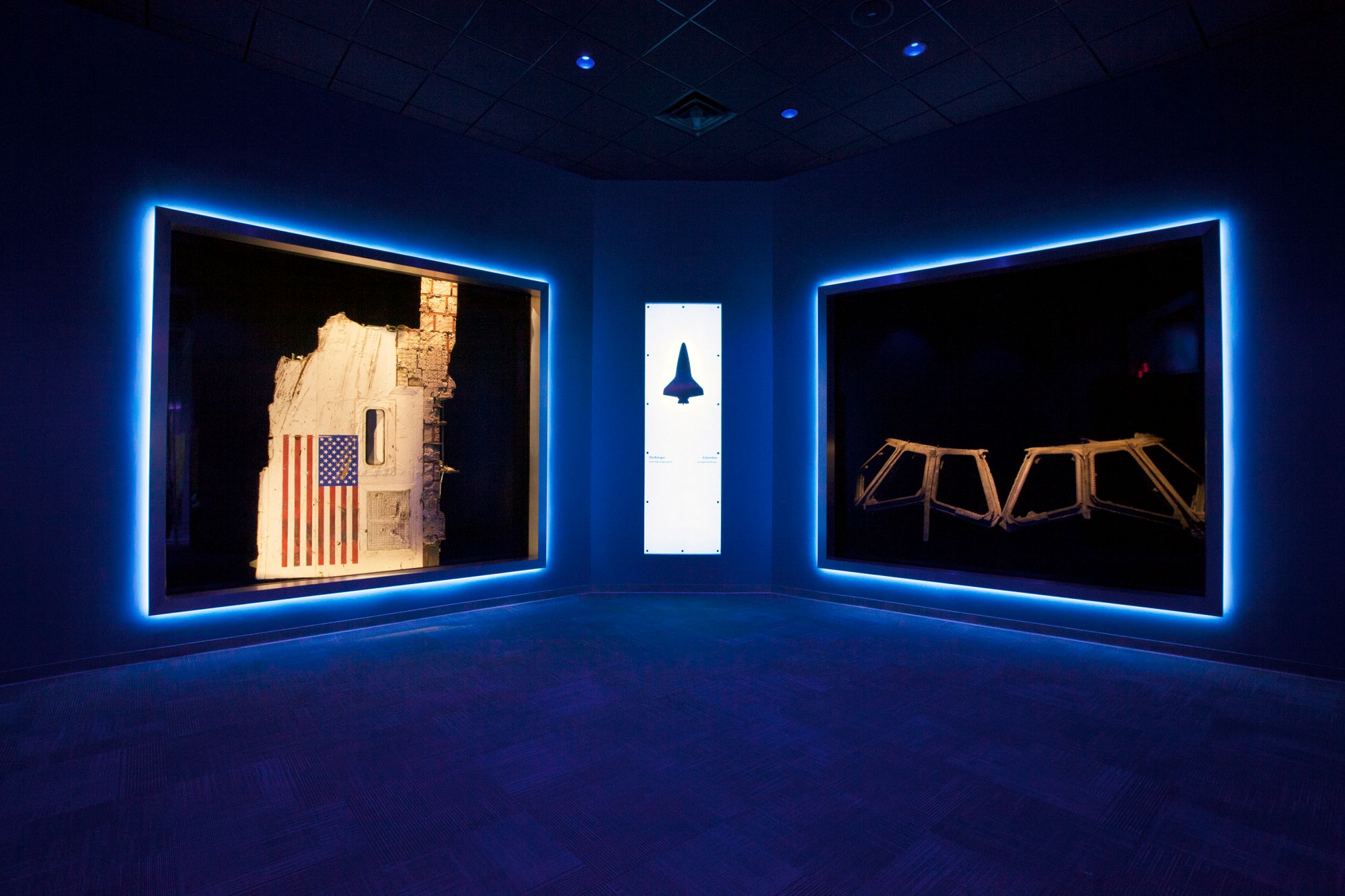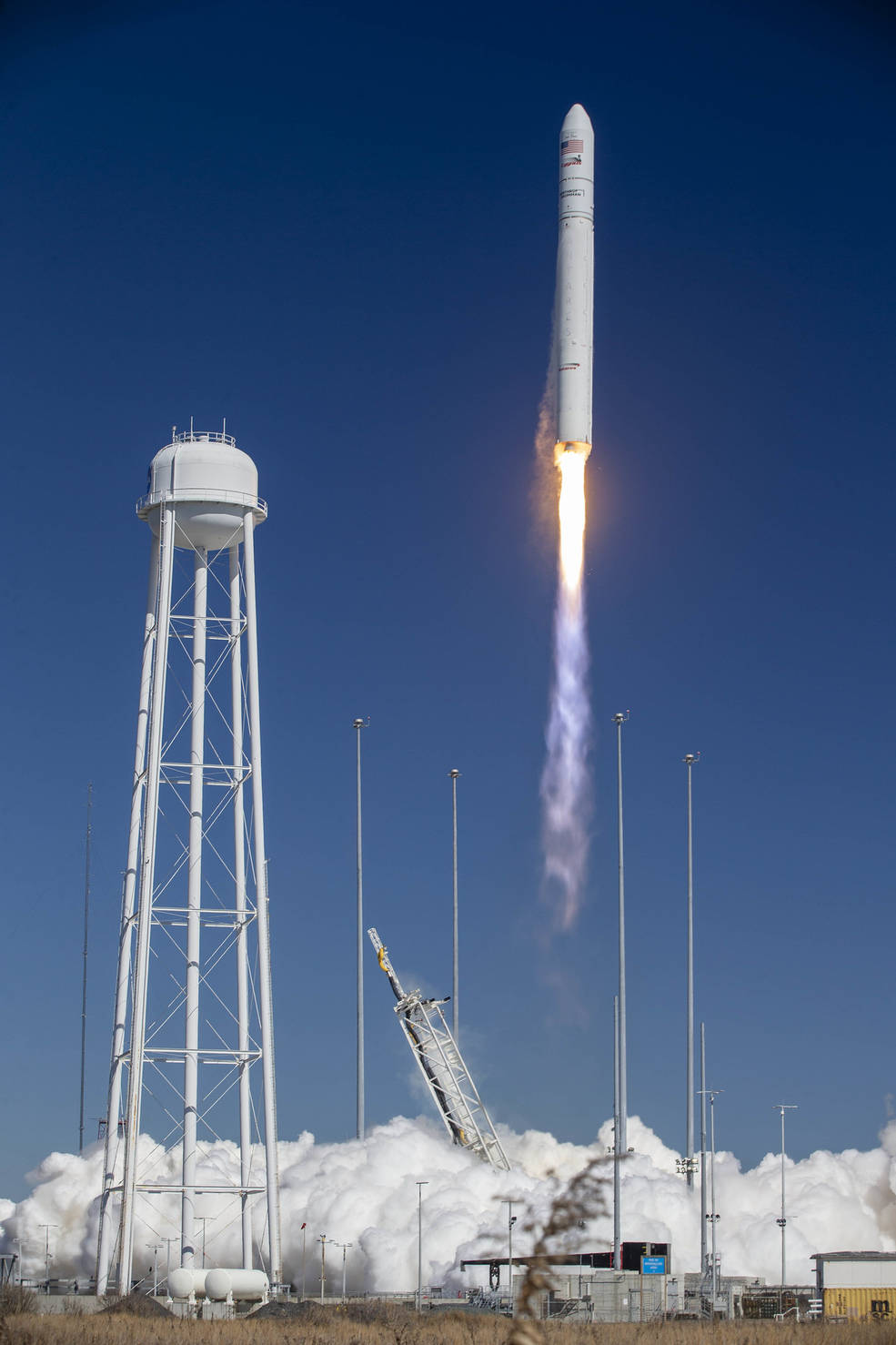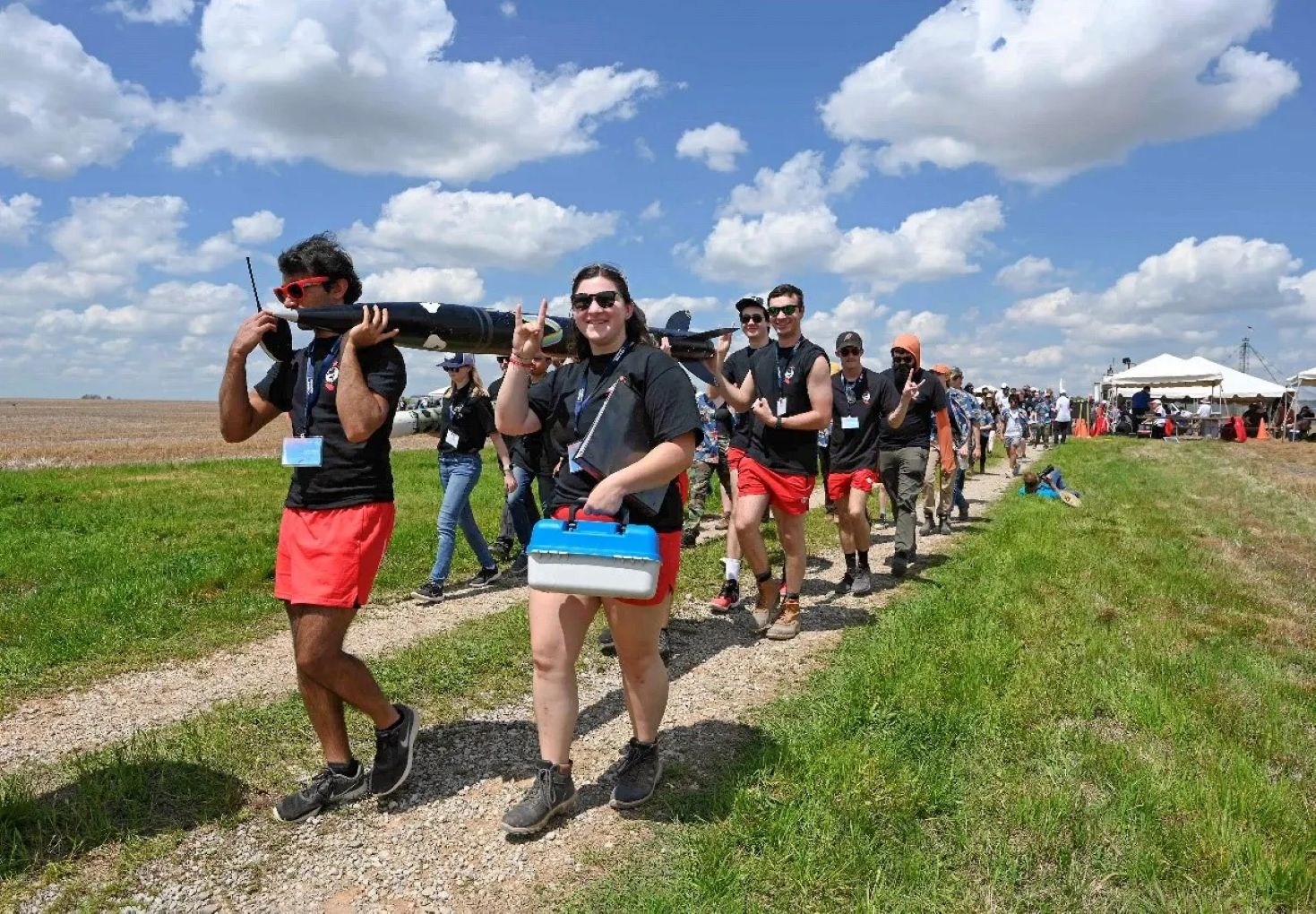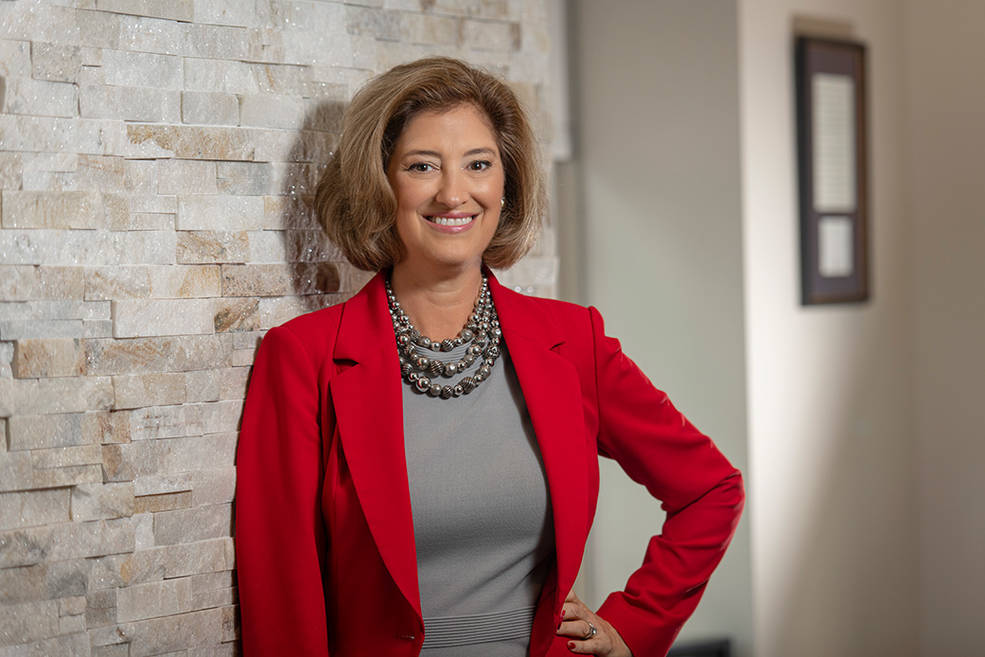Girls in STEM Inspired to Fly High at NASA Kennedy
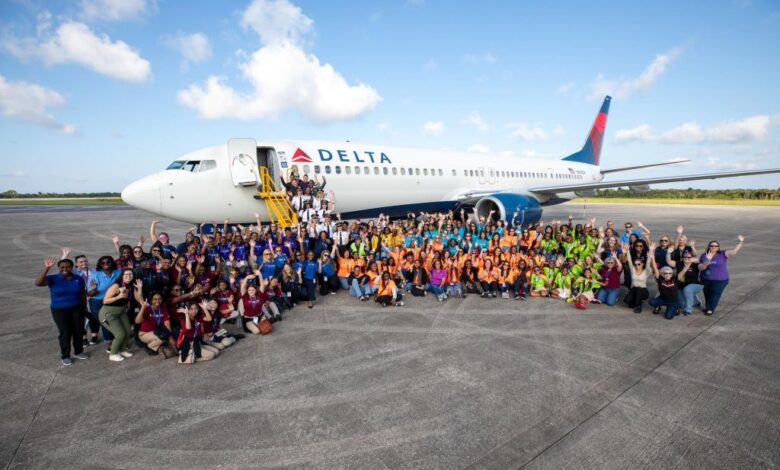
For the third straight year, scores of young women flew to NASA’s Kennedy Space Center in Florida to learn how to make their aviation dreams take flight as part of the Delta Air Lines Women Inspiring our Next Generation (WING) program. Their Boeing 737 aircraft, piloted by an all-female crew, carried 130 girls, ages 11 to 18, who hail from Atlanta area schools and aviation organizations with a strong focus on STEM.
They departed Atlanta’s Hartsfield-Jackson International Airport just after sunrise on Sept. 20 and just a few hours later, stepped onto the runway of Kennedy’s Launch and Landing Facility, where dozens of space shuttle missions landed and current-day NASA astronauts arrive at ahead of their launches to the International Space Station.
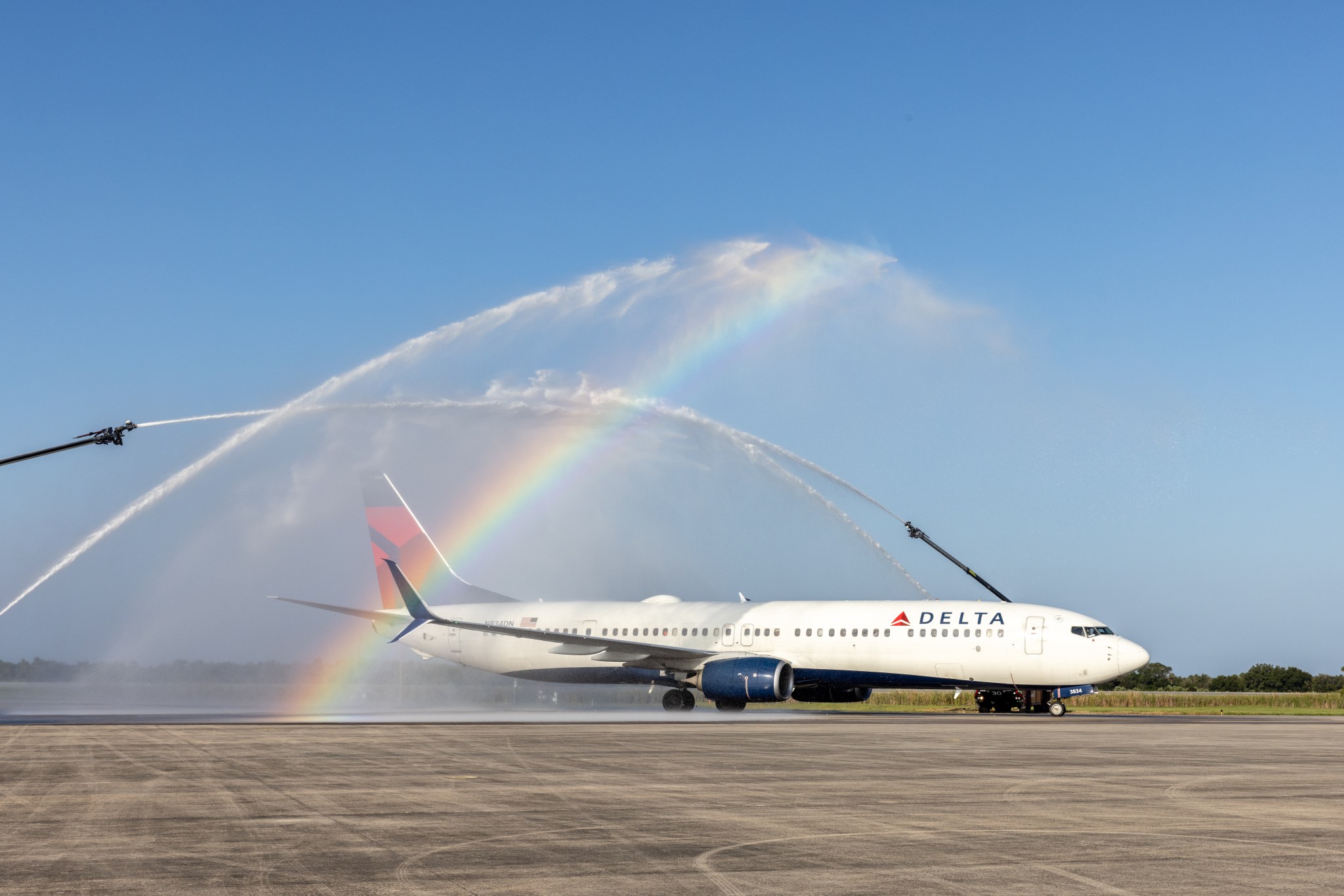
A Delta plane, carrying an all-female crew and 130 young women ages 11 to 18, received a “water salute” upon arrival on Friday, Sept. 20, 2024, at the Launch and Landing Facility at NASA’s Kennedy Space Center in Florida.
NASA/Kim Shiflett
“For more than 60 years, Kennedy Space Center has been the launching point for many of the missions that have inspired the nation and challenged generations of students to reach for the stars,” said NASA Kennedy Director Janet Petro. “As an aviator myself, today is especially exciting because it showcases the diverse range of career opportunities available to young women interested in pursuing fields in science, technology, engineering, and math.”
The girls received a bus tour of NASA Kennedy facilities and photo opportunities at Launch Complex 39B, where the first woman to set foot on the Moon will launch in the coming years on Artemis III. Then at the spaceport’s Space Systems Processing Facility, the girls heard firsthand from NASA Kennedy’s women leaders, who offered encouragement and words of wisdom.
“I want you to look around you. The young women in this room are going to be the trailblazers of the Artemis Generation,” said Dicksy Chrostowski, director of the Office of Communications at NASA Kennedy. “You may very well live and work on the Moon, or be one of our first visitors to Mars. There is always a path to greatness for you to take, even if it’s hard to find.”
The girls of the Delta WING flight finished their day exploring the Kennedy Space Center Visitor Complex before reboarding the plane for their return trip to Atlanta. The experience of visiting NASA’s iconic spaceport and the lessons imparted by the women of NASA resonated with the girls.

From left to right, Savitri Thomas, management and program analyst; Ales-Cia Winsley, lead Space Launch System avionics engineer; and Alexandra Philip, metrology engineer, at NASA’s Kennedy Space Center in Florida, speak on Friday, Sept. 20, 2024, to the young women of the Delta WING flight about their NASA careers and the value of STEM education.
NASA/Kim Shiflett
“As a woman of color, it’s great to see other women who look like me in these spaces and it’s very uplifting to hear their stories and how far they’ve come,” said Karsyn Britton-Mauge, a seventh grader from the Ron Clark Academy in Atlanta. “Life is filled with ups and downs, and I am so inspired by the persistence in all the women who spoke to us today. They never stopped pursuing their dreams.”
The focus on STEM education as a path to a career in aviation has been a key feature of the annual Delta WING flight since the program launched in 2015. That’s when Delta General Manager of Pilot Development Beth Poole and Delta Pilot Cheri Rohlfing noted a conspicuous lack of women in certain roles of the airline industry, including mechanics, ground personnel, and especially pilots. They initiated Delta WING flights, spearheaded by Delta’s Flight Operations and organized and operated solely by women, as a way of inspiring and educating the next generation of young women on careers in aviation. This year’s trip to NASA Kennedy was the eighth Delta WING flight and third to Kennedy.
“The accomplishments of the future are going to be realized by the dreamers, innovators, and bright minds who are sitting in classrooms today,” Petro said. “And we want these students to know there is a place for them at NASA.”

